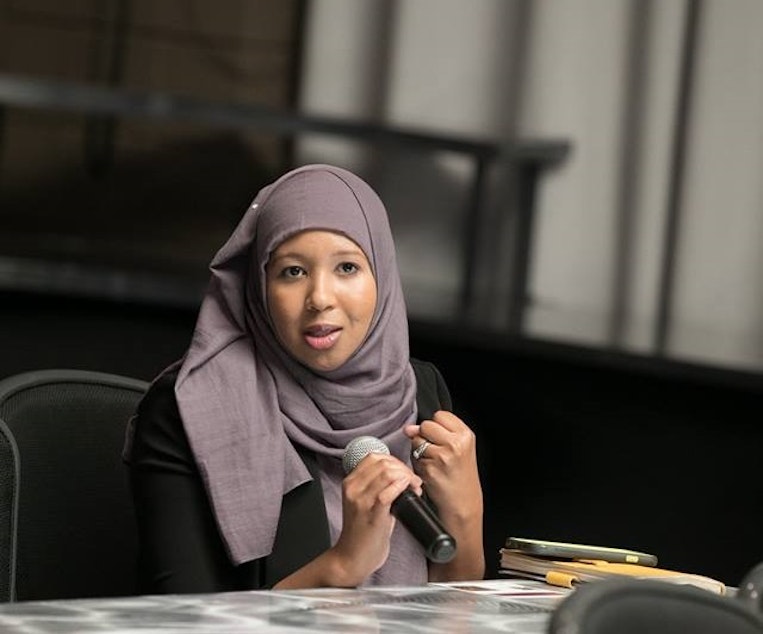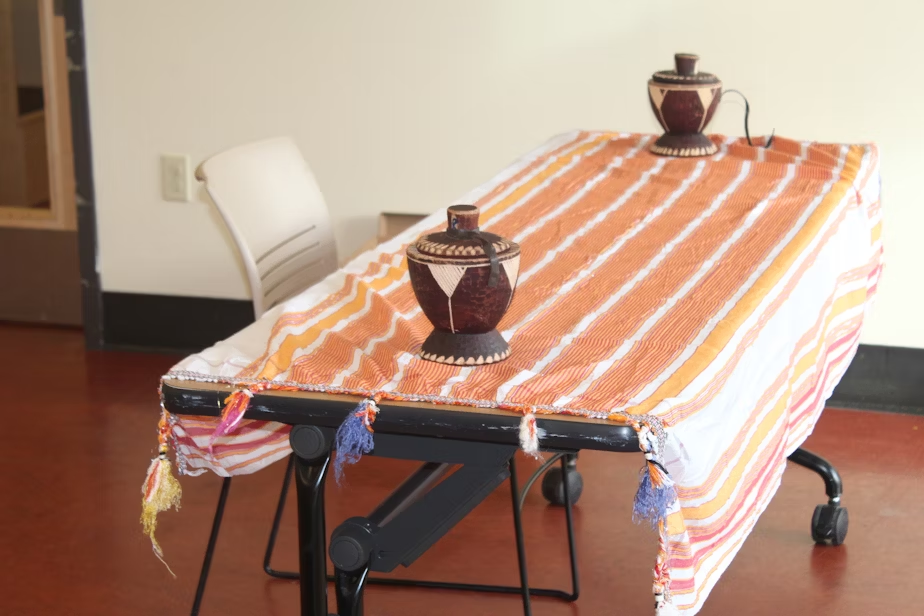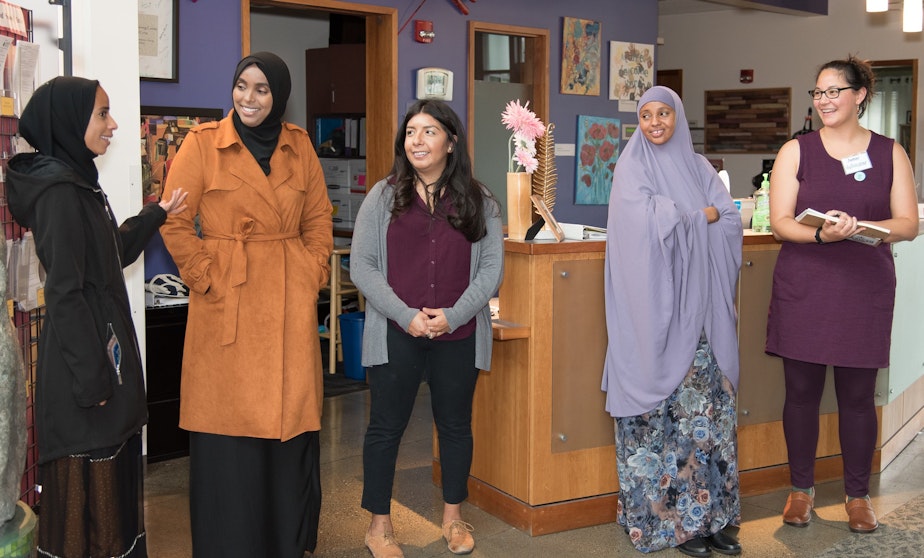My aunt helps immigrant students get the type of education she deserved as a child

My aunt, Regina Elmi, came to the United States from Somalia by way of Kenya in 1996. At that time, multilingualism was not encouraged for immigrant children like her. So she lost the ability to speak her native languages of Swahili and Somali.
As an adult, my aunt realized her biggest regret was this loss of language. So she works to bridge the gap between educators and families to help immigrant children embrace their culture, at home and in schools.
“I wish I had known what I know today,” my aunt Regina tells me as she thinks of her childhood. “I wish I had known the importance of language and multilingualism, the importance of culture and identity.”
When her own children started school, she didn’t see schools respond to the specific needs of students from immigrant households and students who spoke multiple languages. She noticed that parents who didn’t speak English were often left out of decision-making processes for their children’s education. She wanted to see educators celebrate students’ multilingualism.
Because of this realization, she started to organize in her community.

“When we first started, it was more like a social gathering of moms coming together, having tea,” she says.
Sponsored
In 2017, the group realized they could become an organization that could “impact systems, that truly elevates community and brings the brilliance of community forward so that you are not doing to the community. You’re doing with community,” she says.
This gathering of moms turned into a non-profit organization that my aunt co-founded with Fartun Mohamed called Supporting Partnerships in Education and Beyond (SPEB). SPEB came from the need for an organization that helped families and students build bridges with educators without having to lose their own unique cultural identities.
SPEB, formerly known as the Somali Parents Education Board, provides workshops and trainings to inform parents about education policy changes and how to navigate the education system. They also work with schools to develop culturally responsive practices to engage families.
She shares her biggest advice to families: “When your child is telling you that something is not right, be their advocate. Talk to your child. Don’t let them feel like they don’t have an advocate, especially at home, and it doesn’t matter whether you speak the language.”

Sponsored
SPEB reaches families of many backgrounds who want to find ways to better support their children’s needs. But a new issue arose with Covid-19: how will students, especially non-native English speakers and students from immigrant families, be able to receive the level of education they need?
“I think right now in the midst of Covid, now more than ever, communities are really pausing and processing the kind of education they want,” my aunt Regina says. “I think that we’re never going to go back to the ‘normal’ because the normal never served us.”
My aunt Regina now knows the type of education she deserved as a child and what kind of relationship families deserve to have with educators: one that celebrates the unique cultures of each story, at home and in schools.
All audio for this story was collected following CDC safety guidelines during Covid-19.
Sponsored
This story was created in KUOW's RadioActive Online Radio Journalism Workshop for 15- to 18-year-olds, with production support from Kenju Waweru. Edited by Mary Heisey.
Find RadioActive on Facebook, Twitter, TikTok and Instagram, and on the RadioActive podcast.
Support for KUOW's RadioActive comes from the Bill & Melinda Gates Foundation Discovery Center.



